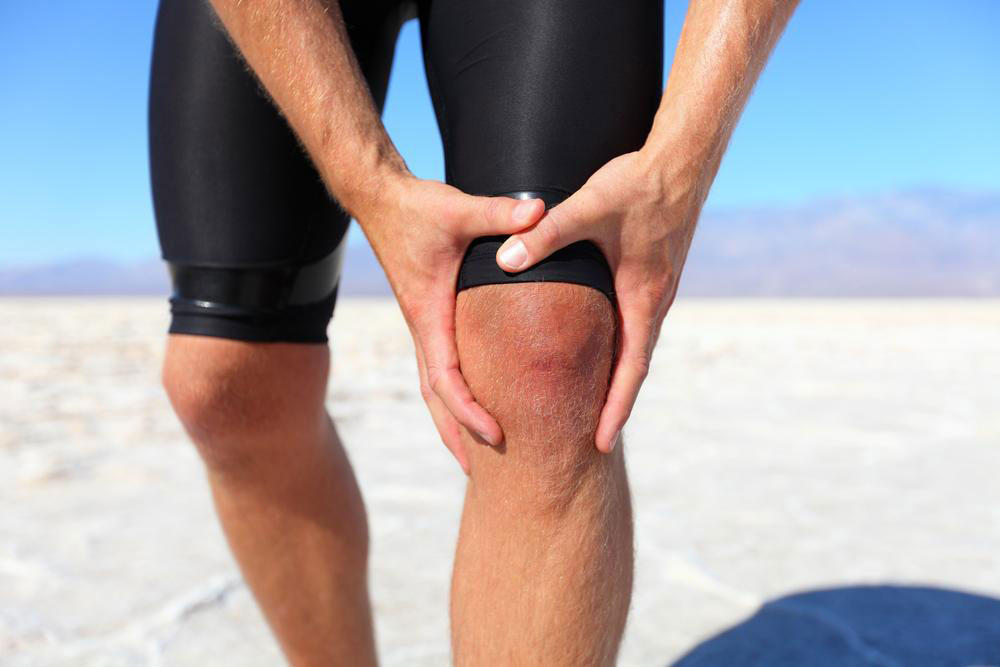5 Common Causes of Pain Behind the Knee
The knee is one of the biggest and most complex joints present in our body which is comprised of different types of bones such as the shinbone known as the tibia, the smaller bone that runs parallel to the Tibia is known as the fibula, the thigh bone known as the femur and the kneecap, which is known as the patella. Apart from bones, this knee joint is also a collection of different types of tendons, muscles, cartilage, and ligaments.
The knee is considered to be one of the most injury-prone areas in our whole body, and that’s why most people experience leg pain behind the knee at some point in their lives.

Leg Cramps
A cramp is a condition in which people experience sudden tightening or contraction of muscles.
Leg cramps are considered to be one of most common causes of leg pain behind the knee that mainly occurs during workouts or exercises. Pregnancy can be one of the common causes of developing leg cramps in women. There are several other possible causes of leg cramps that include: nerve problems in legs, dehydration, tetanus infections, the presence of toxins such as lead or mercury in blood and liver disease. Leg cramps usually last for few seconds to few minutes, but the muscle behind the knee can swell up for few hours after the cramp passes.
Jumper’s Knee
Patellar Tendonitis, which is the other name of jumper’s knee, is actually an injury that causes multiple small tears in the tendon. The tendon is a muscle cord that connects our kneecap (patella) to our shin bone (tibia). This injury mostly takes during jumping or changing direction while playing sports such as basketball or volleyball, which eventually makes the tendon-muscle swell up.
Jumper’s knee causes pain below the kneecap, which can worsen over time if not properly treated with an ample amount of rest and medications. Some of the other symptoms associated with this injury are the weakness of leg muscles, the stiffness of the knee joint, finding trouble in bending or moving the knee.
Hamstring Injury
Hamstring is a combination of three different muscles namely semitendinosus muscle, semimembranosus muscle, and biceps femoris muscle that runs down the whole back length of the thigh and this muscle trio helps us to bend the knee. Causing injury to any of these muscles is called a pulled hamstring or hamstring injury which is also known as Biceps femoris tendonitis.
Hamstring injuries mostly take place when the legs muscles are stretched too much, resulting in the complete tearing of the hamstring muscles. Injuring a hamstring muscle is associated with sudden pain especially in the back of the knee region. Other symptoms of pulling a hamstring muscle may include swelling in the knee region, bruising and sometimes weakness in the back of your leg.
Baker’s Cyst
Baker’s cyst is a condition in which a fluid-filled sac is formed behind the knee due to the extra accumulation of a fluid known as synovial fluid. Normally, this synovial fluid acts as a lubricant for the knee joint, but sometimes due to certain knee injuries, the knee starts to produce too much of that fluid which results in the form of a painful cyst behind the knee joint.
Symptoms due to the formation of Baker’s cyst include pain in and behind the knee along with swelling, stiffness, and trouble moving the knee. Baker’s cyst sometimes gets healed on its own but can get worse if ample amount of rest is not taken along with some other physical therapies
Arthritis
Arthritis is a type of knee disease that is associated with the progressive deterioration of the cartilage that protects and supports the knee joint. This disease is associated with severe pain and stiffness of the knee that can eventually require a surgical treatment along with other medical interventions. There are mainly four types of Arthritis that can be a cause of leg pain behind the knee which is known as osteoarthritis, rheumatoid arthritis, lupus, and psoriatic arthritis.
The above mentioned 5 causes are the common ones that are responsible for leg pain behind the knee. Apart from these, there are various diseases and injuries that are associated with knee pain. So, if you are experiencing any kind of severe or mild pain, it is advisable to set up an appointment with a doctor before the condition gets worse.

